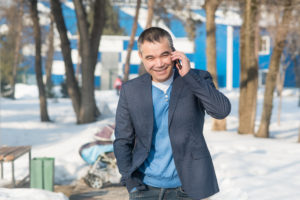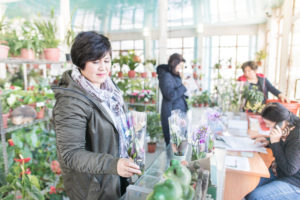Author: Olesya Kravchuk, AFEW International
29,568 HIV cases were registered in Kazakhstan as of February 2017. According to the official data, in 2016 there were14,345 tuberculosis patients registered in the country. Usually, these people hide themselves, and are often afraid even to tell their relatives about their diagnosis. But there are also those who openly talk about their status, and who show that it is possible to get out of the shadow.
At the end of March, the photo exhibition ‘Life in the Shadow’ dedicated to the World Tuberculosis Day took place in Almaty. AIDS Foundation East-West in Kazakhstan organized this event. The exhibition featured photos of people affected by HIV and tuberculosis. Today we will tell the stories of some of them.
LEARN TO LOVE YOURSELF
After the death of her mother in 2008, Venera started to lose weight. The woman thought it was because of the grief she was experiencing, but still went to the hospital for the X-rays and medical tests. There it was discovered that Venera had an open form of tuberculosis.

“By that time, I was very weak and all the time felt sick in my stomach. I weighed 48 kilograms,” says Venera. “During three months I was out there with an open form of tuberculosis until they accepted me in the hospital. All I wanted at that time was to lie down and die! I was in darkness, alone, rejected by everyone. I did not believe that I would get out of that hospital alive. All the time I was sick because of the pills. My son and my sister, who, after my mother’s death, was taken to an orphanage, as I did not have time to register custody, were the only people who kept me alive. They called me, told me they needed me, asked not to die. It was the strongest motivation to live! After some time, I started to feel better and began recovering.”
A year later, Venera was diagnosed with tuberculosis and lung disintegration. At that time, the woman was pregnant. Since no one told her that during the pregnancy tuberculosis can be treated, Venera was advised to have an abortion.
“In the hospital they gave me the bed that was standing in the hallway, and soon the whole department knew I had tuberculosis,” Venera recalls. “People were scared of me. The gynaecologist was commenting something like, why people like me are even allowed to give births at all. That was such a humiliation!”
After she got out of the hospital, Venera realized that it does not matter what your position in the society is, the tuberculosis makes everyone equal. The woman became stronger and kinder, started to pay more attention to her relatives, helped those who needed help. Three years later, Venera gave birth to the healthy twins.
“I defeated tuberculosis. If you have such diagnosis, do not be not afraid and believe that you will recover!” says Venera. “Do not be scared of anyone, this is not a disgrace. Most importantly – do not refuse the treatment, otherwise you can infect your relatives and friends. Learn to love yourself!”
A DECISION TO LIVE

Salavat has been living with HIV since 2011. The man has heard something about this disease, but did not have a clear understanding of it. He thought it was somewhere far away, not here, and he could not even imagine that he could get infected.
“The doctor was calming me down, saying that people live with it, that it is not fatal, that in the future there probably will be a medicine… At first, of course, I felt bad, but I quickly overcame my fears,” Salavat says. “I made a decision to live. Now I know a lot about HIV. I am confident that I can work, and I am able to live. I know that we are the same people as everybody else, we are not infectious.”
To those who only got to know about their diagnosis, Salavat advises to be strong and take care about their health. It is very important to enjoy life, to share joy, and not to lapse into a cocoon of self-isolation.
ACCEPTING THE DIAGNOSIS
Oksana learned that she was HIV positive in the rehabilitation centre for drug addiction.

“It was scary, somehow I made myself believe that I had only five years left to live and I have to fill my last years with fun and unforgettable experience!” Oksana is saying. “Before my diagnosis, I thought that HIV is something that is far away and it is impossible to get it in Kazakhstan.”
At that time, the woman needed support, and she got it from her family. The first one who learned about her diagnosis was Oksana’s sister.
“Later I asked her what she felt when she found out that I was HIV positive,” Oksana remembers. “Surprisingly enough, most of all she was worried about me, because the first thing I could convince her in was that I had only five years to live. About three years later, I accepted my diagnosis. I realized that I am not dying, and started to learn how to live with HIV.”
The acceptance of the diagnosis did not only benefit Oksana’s professional development, but also her personal development.
“I am happy to be busy with my favourite things, I am with a person I love and my family is very friendly. I learned how to live with HIV. You just need take more care about your health and love life!” Oksana resumes.
TO BELIEVE IN RECOVERY

The only thing Sultanmurat knew about tuberculosis was that it is a dangerous disease. When he heard his diagnosis, he became horrified.
“I experienced haemoptysis. It was scary, but I did not even suspect that it could be tuberculosis. I thought that I had some problems with my internal organs,” recalls Sultanmurat. “I really wanted to be cured, but the treatment was going very difficult. In the beginning, I did not tolerate the medicine and developed allergies. I was fighting with myself, tried not to miss a single day of taking medications and injections. Now I feel much better.”
After being diagnosed, Sultanamurat started to appreciate life more, treated people who are ill with better understanding, began to appreciate and love his relatives even more.
“I would like to tell those who are diagnosed with tuberculosis that this disease is curable, like many other diseases. The main thing is to follow the regime in everything, do not miss taking pills and eat well, move and do sports, be friendly,” Sultanmurat says. “The most important thing is to believe in the best, that is, in your recovery.”



